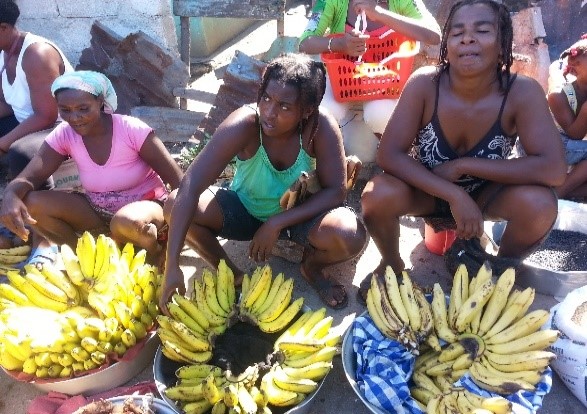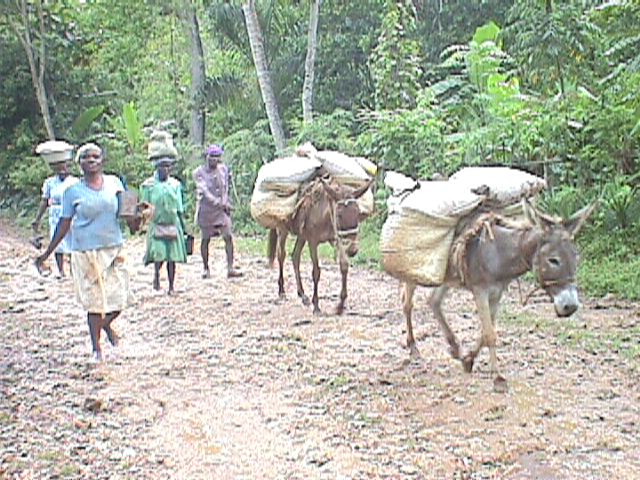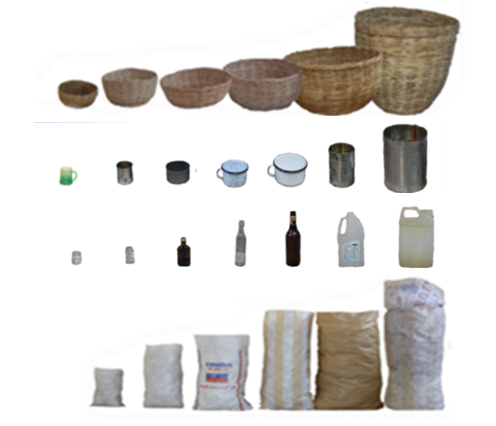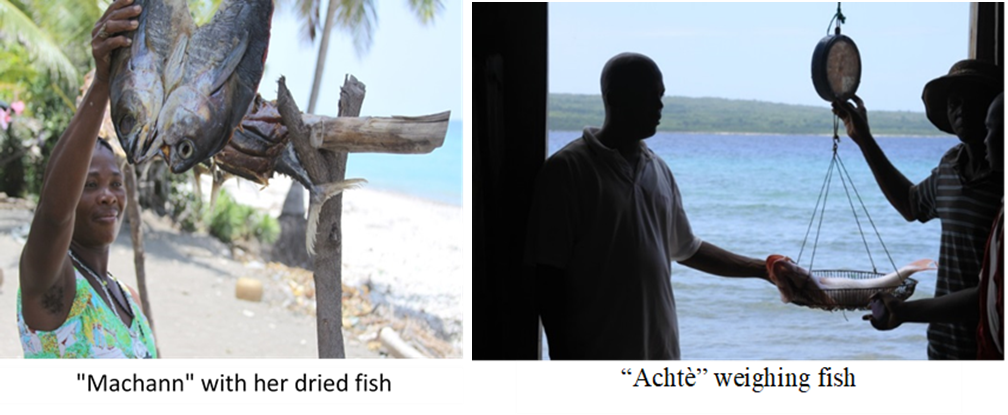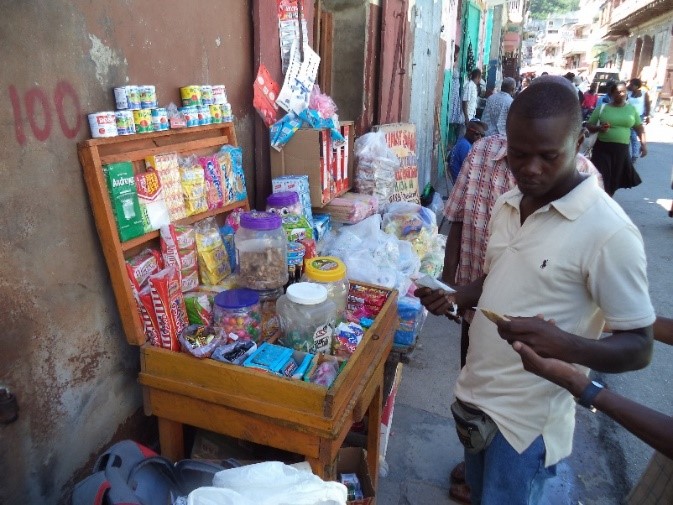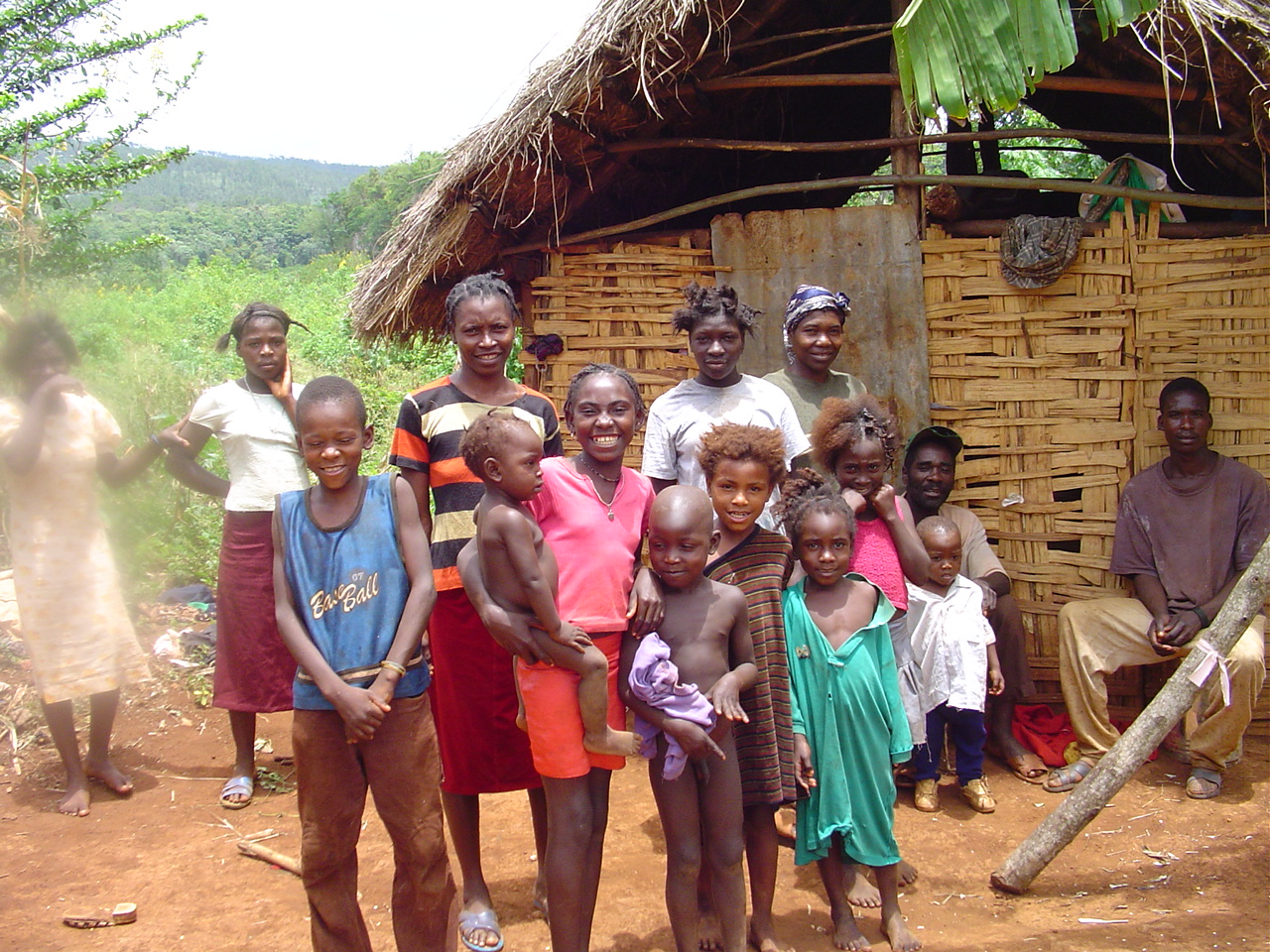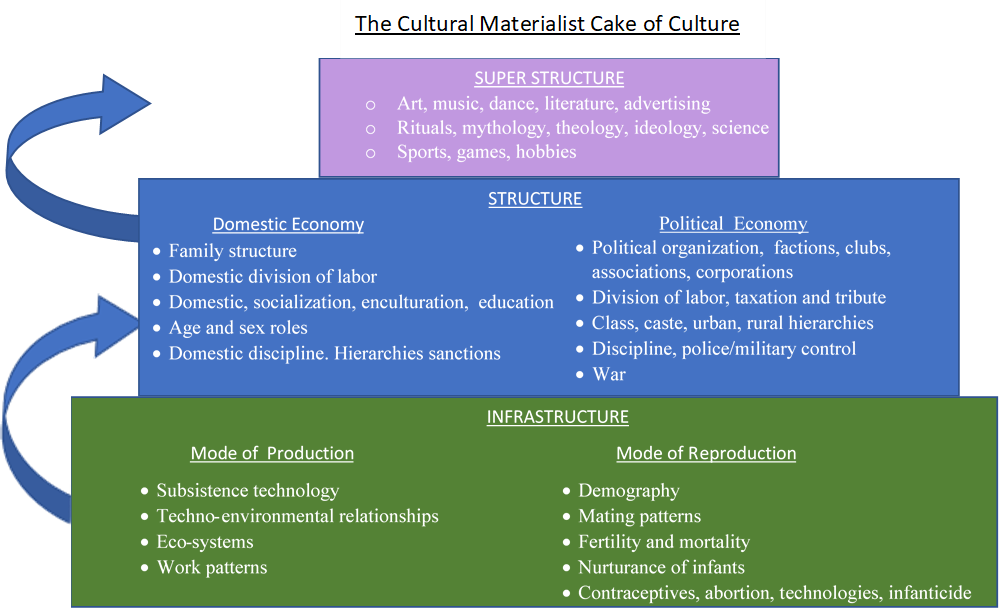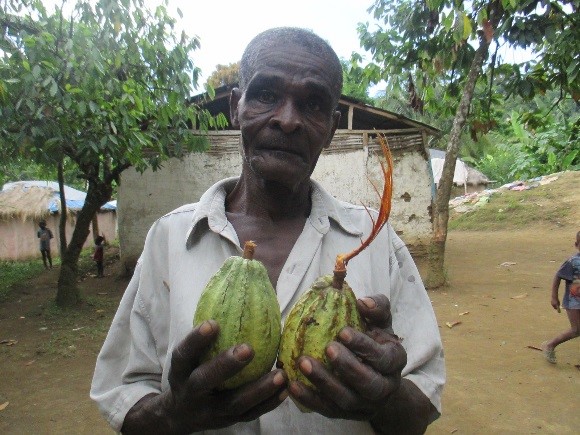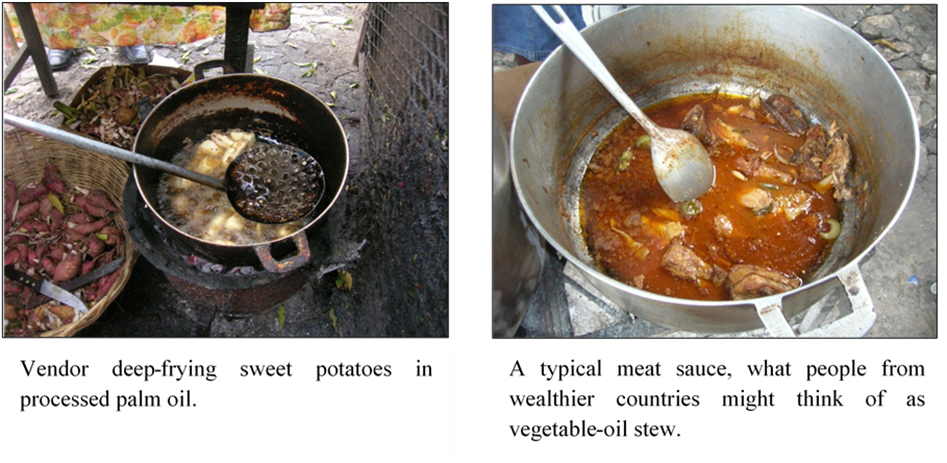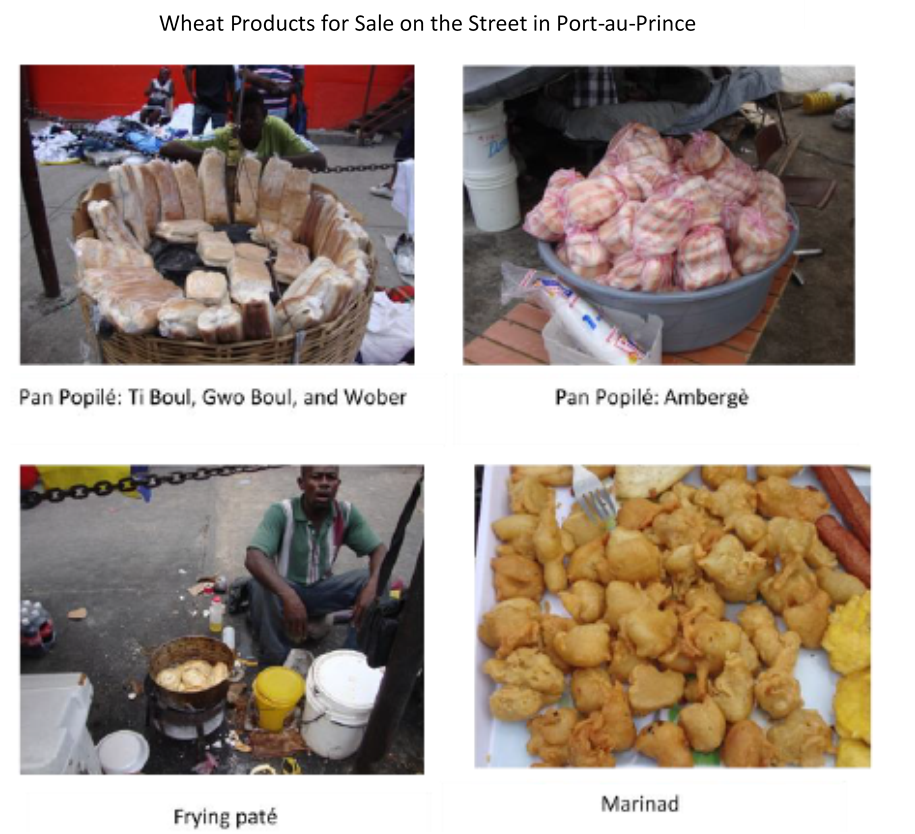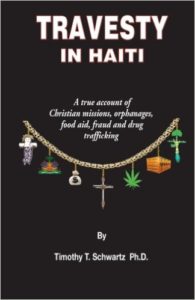Haiti Anthropology Brief: Plantain and Banana Value Chains
Where there is moist, irrigated soil, plantains and bananas are the preferred crop in Haiti. They consistently rank among the top three crops that rural Haitians plant. Eighty percent of rural Haitians plant them and virtually all Haitians eat them. They are to Haitians what the potato is to North Americans. And for reasons describedRead More
Haiti Anthropology Brief: Defining the Haitian Madam Sara
Named for a migratory bird that assiduously searches for and finds food wherever it goes, the Haitian madam sara (pronounced ma-dan sé-ra) acts as the critical market link between rural producers and the urban consumer, most importantly the 30% of the national population who live in Port-au-Prince, many of whom work for wages and receiveRead More
Weights vs. Volume Measures: Overview of Haiti Informal Market Volume Measuring System
The most significant measures for both the market woman and the typical customer in Haiti are those used to measure the most popular staple foods: cans and cups from the mammit (3 litre can), to the ti mammit (500 ml can), to the gode (440 ml), demi gode (320 ml) and the bwat let (180Read More
Gender and the Fish Market Chain in Haiti
NGO Interventions, Associations and the Market Chain: Risk of Putting Women out of Business NGOs have intervened in the purchasing-processing-storage-and-marketing chain to help fishermen get better prices for their fish and thereby bolster income to impoverished households. This support has encouraged the formation of male-dominated fishing associations. In addition to help with offshore fishing, theyRead More
Port-au-Prince Haiti Merchant Monopoly on Bad Snack Foods
The ingredients for prepackaged snack foods on the Haitian market are entirely imported, of low quality and low nutritional value. Their growing role as a main source of food for lower-income Haitians, especially school children, is a threat to the health of the population. And there is little anyone can do about it. Or perhapsRead More
Haiti Anthropology Brief: Eighteen Characteristics of Life in Rural Haiti that Every Aid Worker Should Know
For at least the past 50 years Haiti has arguably been the most aided country on the planet, and arguably the country with the most dismal development record. Aid workers typically leave frustrated, not able to understand why rural Haitians will not adopt crops they promote, or the technologies and strategies that seem to soRead More
Haiti Anthropology Brief: Cultural Materialist Cake of Culture
Here I provide a brief summary of the cultural materialist model with the graphic Cake of Culture. I do so because, a) The model is useful to those seeking to understand the social system in developing countries, and more specifically for those endeavoring to evaluate development interventions and understand why they work or don’t workRead More
Cacao Value Chain in Haiti
This paper summarizes the history of cacao globally and in Haiti, and then explores the cacao value chain in Haiti’s two cacao growing region, the Department of the Grand Anse communes of Chambellan, Dame-Marie, Anse d’Hainault and Irois, and Department of the North communes of Borgne, Port-Margot, Grande Rivière du Nord, Acul du Nord andRead More
Edible Cooking Oil Market Chain in Haiti
Edible oil is yet another area where US special interests and Haitian merchant elites have benefited greatly from US government subsidies and overseas programs. For example, although to my knowledge virtually never cited as a cause, conspiratorially minded observers might seize on the coincidence of the 1982 US sponsored eradication of the Haitian pig—which effectivelyRead More
Wheat Market Chain in Haiti
Although largely ignored in terms of impact on local production, wheat imports have had as great an impact undermining the Haitian local agricultural economy as rice. Unlike rice, Haiti grows no wheat, but thanks to a US subsidized mill through which passes 85 percent of all wheat entering Haiti and an annual importation of moreRead More
